
What is the Most Fuel-Efficient Toyota?
Let's chat about something that affects us all in today's world: fuel efficiency. It's more than just a buzzword; it's a game-changer at the intersection of environmental consciousness and smart spending. In this age of rapid technological advancements and a growing eco-awareness, embracing the significance of fuel efficiency isn't just smart; it's our ticket to a more eco-friendly and wallet-smart future.
Most Fuel Efficient Toyota Models near Doylestown, PA
If you’re searching for a more fuel efficient vehicle , Thompson Toyota has a great selection of new Toyota models as well as our hand-picked selection of used cars in Doylestown .
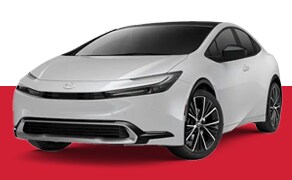
Toyota Prius
Top 3 MPG
(city/highway/combined)
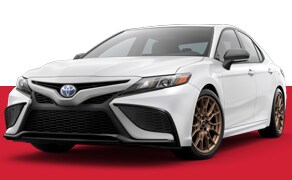
Toyota Camry Hybrid LE
Top 3 MPG
(city/highway/combined)
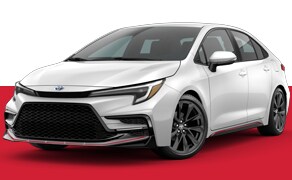
Toyota Corolla Hybrid
Top 3 MPG
(city/highway/combined)
List of New Toyota Models by MPG Rating
| Year / Make / Model | Fuel | City MPG | Highway MPG | Combined MPG |
|---|---|---|---|---|
| 2023 Toyota Prius Prime SE | Gas/Electricity | 53/140 | 51/115 | 52/127 |
| 2023 Toyota RAV4 PRIME | Gas/Electricity | 40/105 | 36/84 | 38/94 |
| 2023 Toyota bZ4X | Electricity | 131 | 107 | 119 |
| 2023 Toyota Mirai LE | Hydrogen | 76 | 71 | 74 |
| 2024 Toyota Prius | Gasoline | 57 | 56 | 57 |
| 2024 Toyota Camry Hybrid LE | Gasoline | 51 | 53 | 52 |
| 2023 Toyota Corolla Hybrid | Gasoline | 53 | 46 | 50 |
| 2023 Toyota Corolla Cross Hybrid | Gasoline | 45 | 38 | 42 |
| 2023 Toyota Crown | Gasoline | 42 | 41 | 41 |
| 2023 Toyota RAV4 Hybrid | Gasoline | 41 | 38 | 40 |
| 2023 Toyota Venza | Gasoline | 40 | 37 | 39 |
| 2023 Toyota Highlander Hybrid | Gasoline | 36 | 35 | 36 |
| 2024 Toyota Grand Highlander Hybrid | Gasoline | 37 | 34 | 36 |
| 2024 Toyota Sienna | Gasoline | 36 | 36 | 36 |
| 2023 Toyota Corolla | Gasoline | 32 | 41 | 35 |
| 2023 Toyota Camry LE/SE | Gasoline | 28 | 39 | 32 |
| 2023 Toyota Corolla Cross | Gasoline | 31 | 33 | 32 |
| 2023 Toyota RAV4 LE | Gasoline | 27 | 34 | 30 |
| 2023 Toyota Supra 2.0 | Gasoline | 25 | 31 | 27 |
| 2023 Toyota GR86 | Gasoline | 21 | 31 | 25 |
| 2023 Toyota Highlander | Gasoline | 22 | 29 | 25 |
| 2024 Toyota GR Corolla | Gasoline | 21 | 28 | 24 |
| 2024 Toyota Sequoia | Gasoline | 21 | 24 | 22 |
| 2024 Toyota Tundra | Gasoline | 20 | 24 | 22 |
| 2023 Toyota Tacoma | Gasoline | 19 | 24 | 21 |
| 2023 Toyota 4Runner | Gasoline | 16 | 19 | 17 |
Source: fueleconomy.gov
What Affects my Fuel Economy?
No matter what you drive, there are some impactful driving habits may have a negative effect on your fuel economy
Aggressive Driving:
Speed demons, take note! Aggressive driving habits like speeding, rapid acceleration, and frequent braking can significantly lower gas mileage. You could be looking at a reduction of roughly 15% to 30% on the highway and a whopping 10% to 40% in stop-and-go traffic.
Excessive Idling:
Keeping your engine running while parked is a fuel economy buster. The more you idle, the lower your miles per gallon (MPG) become. Even though the EPA city test accounts for idling, excessive idling will still take a toll on your MPG.
High-Speed Driving:
Cruising at higher speeds might be exhilarating, but it comes at a cost. Driving faster increases aerodynamic drag, which means more wind resistance, ultimately reducing fuel economy. The new EPA tests factor in aerodynamic drag up to highway speeds of 80 mph, but some speed enthusiasts may push beyond this limit.
Cold Weather and Short Trips:
If you're a fan of winter or frequent short trips, your fuel economy might suffer. Cold weather slows your engine's warm-up process, and short trips don't give your vehicle enough time to reach its optimal temperature. Fun fact: Letting your car idle to warm up doesn't harm your fuel economy—it actually consumes more fuel and increases pollution.
Excess Weight:
Carrying cargo or cargo racks on top of your vehicle? Planning a road trip with heavy cargo or towing a trailer? During testing, vehicles are assumed to carry only up to 300 pounds of passengers and cargo, so excess weight can impact your MPG.
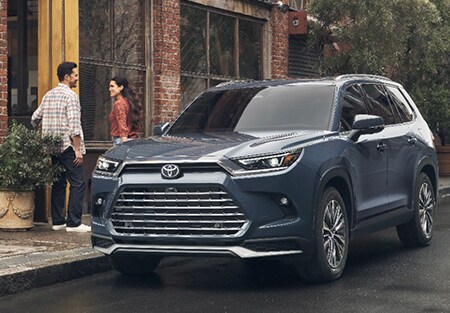
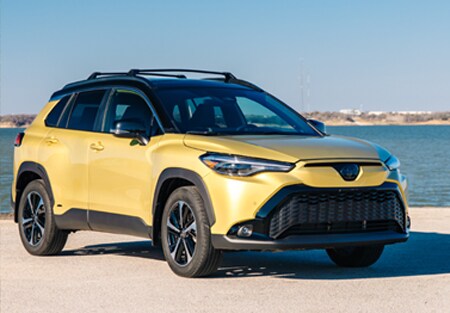
How Can I Save on Fuel Economy?
These small changes can help you navigate the road to improved fuel economy and a greener, more cost-effective drive.
Declutter Your Vehicle:
While having essential items like an emergency kit in your car is crucial, unnecessary clutter can weigh you down and reduce fuel efficiency. Start by removing forgotten backpacks, sports gear, and extra books. You'll be amazed at how these seemingly small changes can add up.
Minimize Idling:
Many modern vehicles come equipped with a stop-start system, which conserves fuel by automatically shutting down the engine when the car comes to a stop and restarting when the brake is released. Surprisingly, idling consumes more fuel than restarting your car and results in 80% more pollution when compared to driving. So, the next time you find yourself waiting for someone while stopped, consider turning off your engine to save on fuel.
Maintain a Steady Speed Within the Limit:
After reaching speeds of 45-50 mph, your car's fuel efficiency begins to decline. The faster you go, the greater the impact on fuel consumption. To maximize your fuel efficiency, it's best to drive at the speed limit and utilize cruise control whenever possible. Avoid rapid acceleration and hard braking, as they can quickly deplete your fuel reserves.
Check Your Tire Pressure:
Maintaining the correct tire pressure is essential for optimal fuel efficiency. Underinflated tires can increase fuel consumption by up to 3%. Additionally, improper tire inflation can lead to quicker tread wear. To determine the right PSI for your tires, consult your owner's manual or check the tire wall.
Prioritize Regular Maintenance:
Neglected maintenance can adversely affect your fuel economy. Dirty air filters, worn spark plugs, and faulty connections can all contribute to decreased efficiency. By adhering to the maintenance schedule recommended by your dealership, you can ensure that your vehicle operates more efficiently and produces fewer greenhouse gas emissions. Regular tune-ups at your dealership can include air filter replacement, motor oil changes, tire rotations, and more.
More on Toyota Fuel Efficiency Technology
The remarkable fuel efficiency of Toyota's hybrid models is primarily attributed to their Dynamic Force engines, which optimize performance by achieving high torque at all speeds and a remarkable 40% thermal efficiency. This is in contrast to most other contemporary engines that typically reach 25-35% thermal efficiency, resulting in a significant amount of wasted heat. Toyota's hybrid lineup, which includes a variety of hybrid sedans and SUVs, as well as plug-in hybrid options and the all-electric Toyota bZ4X, offers an array of choices for eco-conscious customers, ultimately reducing the impact on both their budgets and the environment.
Make an Inquiry
* Indicates a required field
